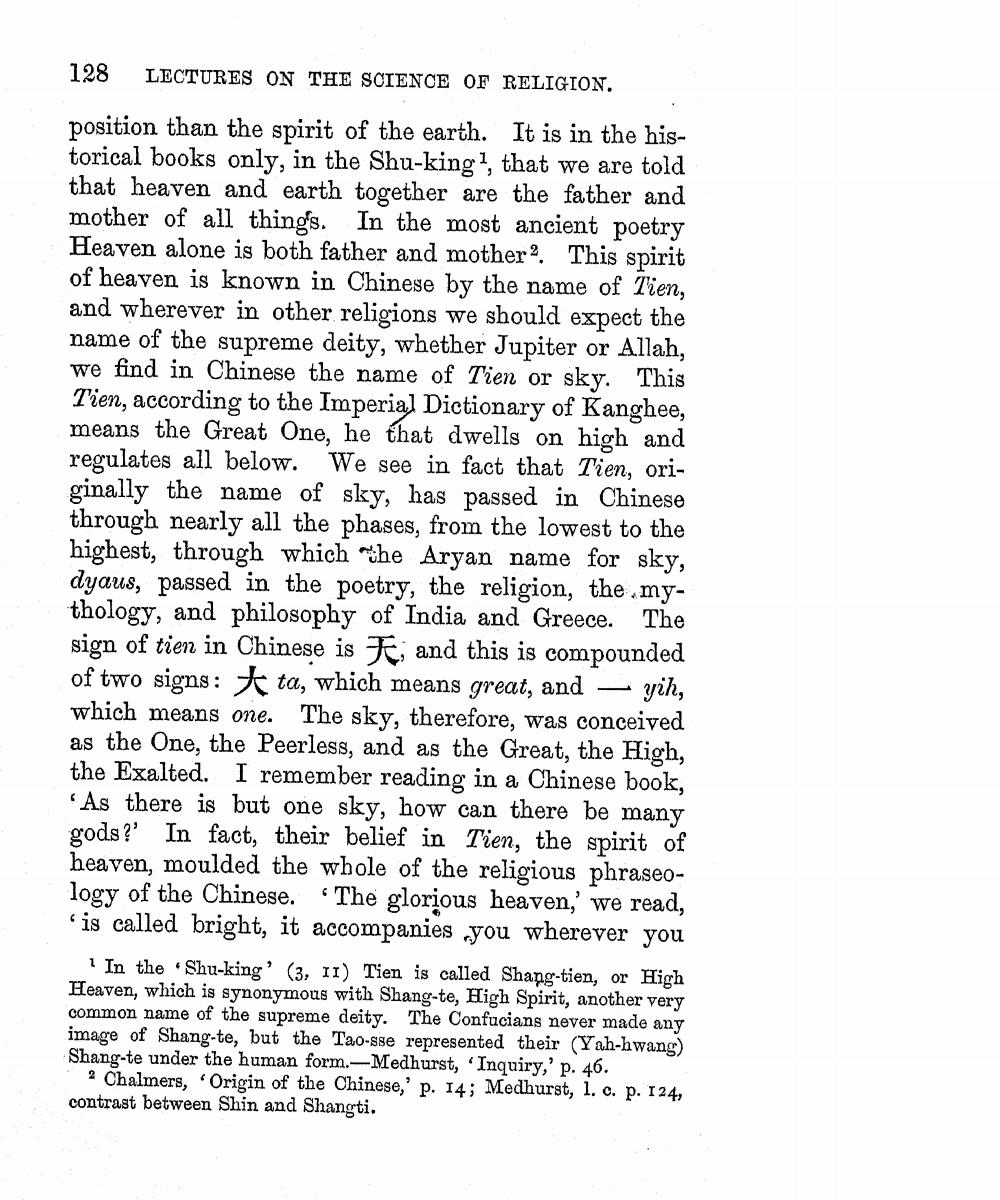________________
128
LECTURES ON THE SCIENCE OF RELIGION.
position than the spirit of the earth. It is in the historical books only, in the Shu-king?, that we are told that heaven and earth together are the father and mother of all things. In the most ancient poetry Heaven alone is both father and mother. This spirit of heaven is known in Chinese by the name of Tien, and wherever in other religions we should expect the name of the supreme deity, whether Jupiter or Allah, we find in Chinese the name of Tien or sky. This Tien, according to the Imperial Dictionary of Kanghee, means the Great One, he that dwells on high and regulates all below. We see in fact that Tien, originally the name of sky, has passed in Chinese through nearly all the phases, from the lowest to the highest, through which he Aryan name for sky, dyaus, passed in the poetry, the religion, the mythology, and philosophy of India and Greece. The sign of tien in Chinese is F; and this is compounded of two signs: ta, which means great, and — yih, which means one. The sky, therefore, was conceived as the One, the Peerless, and as the Great, the High, the Exalted. I remember reading in a Chinese book,
As there is but one sky, how can there be many gods?' In fact, their belief in Tien, the spirit of heaven, moulded the whole of the religious phraseology of the Chinese. The glorious heaven,' we read, is called bright, it accompanies you wherever you
1 In the Shu-king' (3, 11) Tien is called Shang-tien, or High Heaven, which is synonymous with Shang-te, High Spirit, another very common name of the supreme deity. The Confucians never made any image of Shang-te, but the Tao-sse represented their (Yah-hwang) Shang-te under the human form.-Medhurst, 'Inquiry,' p. 46.
? Chalmers, Origin of the Chinese,' p. 14; Medhurst, I. c. p. 124, contrast between Shin and Shangti.




